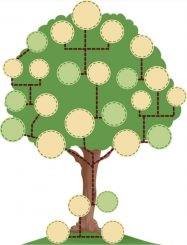Tokyo Mental Health is here to support you and provide you with the help you need.
What is Family Therapy?

Do you feel like your family is dysfunctional?
Are there disagreements about parenting and family values?
Has family become an unsafe place?
When we think of what a family should be, we may have images of laughter and conversations at the dinner table or parents patiently encouraging their child during difficult times. However, this image of family being a place of love, stability, and support can be elusive as we struggle to navigate the complicated and often dysfunctional relationships that we have in family.
Family therapy involves counseling with 2 or more people to address problems that impact the health and functioning of the larger family unit. Members of the family unit may include immediate and extended family, children, and even close friends. Family therapy can be effective in addressing different issues that often occur in families, such as communication difficulties, poor conflict resolution, and disagreements over parenting.
In family therapy, the therapist takes a non-judgemental and impartial role in mediating conflicts and supporting clear and productive communication within the family. The goal of treatment is often to strengthen the family unit so that it can be a safe and supportive environment for all members of the family to create stronger bonds and increase positive interactions.
What is Family Therapy Like at TMH?
Methods in Family Therapy
There are a wide variety of strategies and methods that a therapist may apply in Family Therapy. Some of the most common are the following:
Systemic Family Therapy
In this model, the therapist works from the assumption that problems are maintained from dysfunctional family patterns. Rather than analyzing the origins of unhealthy patterns, systemic therapy focuses on recognizing and altering those patterns. This process helps uncover how members communicate and behave within the system. This approach emphases the “here and now” and tends to be solution focused rather than problem saturated.
Bowenian Systems Family Therapy
Murray Bowen believed that change happens when individuals move along in the process of differentiation. Differentiation is the ability to maintain your genuine self in the face of high anxiety, usually brought on by the expectations of you from your system (family, work, peer group, etc.). Therapists in this school of thought ask process questions – “How does that work?” “What do you think about this?” – to separate thoughts and emotions in order to reduce anxiety. The goal is to help clients decrease their emotional reactivities and increase thoughtful responses to remain autonomous, thus developing a higher level of differentiation.
Structural Family Therapy
Structural family therapy assumes that problems reside within a family structure, which include boundaries, hierarchy, and subsystems. Structures could be too rigid (chaotic or closed) or too diffused (enmeshed). After mapping out the structure of the family, therapists help clients to realign boundaries by changing their patterns. Restructuring the system changes the experience clients have in the family.
Experiential Family Therapy
In this model, we see family problems as being rooted in the suppression of feelings, denial of impulses, lack of awareness, emotional deadness, and overuse of defense mechanisms. In order for change to occur, the family members must get in touch with their real feelings. Experiential therapists present the genuine self to work with the family. Sometimes, there are needs to increase stress among the family members to induce an honest and open communication. Termination happens when the defenses of family members are broken – the family communicates openly, and members can relate to each other in a more honest way.
Narrative Therapy
The narrative therapist believes reality is shaped by the language individuals use to describe their worldview. An individual’s truth may not match historic events exactly or match up with another person’s truth, but it is true to the individual who created it. Narrative therapists assist the family with telling their individual stories, their experiences with their problems, and presumptions about those problems. The goal is to help the family find the alternative but preferred story that is not problem-centered. Further information about Narrative Therapy can be found on our webpage.
Should I See a Family Therapist?
5 Things Family Therapy Can Help Your Family With
You can see a family therapist for many reasons, including:
- Ineffective communication: Criticisms, despisements, shutting down, quick escalations, and defensiveness in arguments are all signs of ineffective communication.
- Parenting children with behavioral or developmental issues: Attachment problems, behavioral difficulties, ADHD, etc. can all benefit from family therapy.
- Family members who are experiencing mental illness: Family support is often crucial in recovering from mental illness. Family therapy can help you understand what kind of support your family may need, and how you could assist a family member who is experiencing a mental illness.
- Losses that occur in the family: Certain losses can be associated with strong feelings of grief. Among others, loss can include moving to different countries, loss of financial security, death of family members, illness, relationship breakup.
- Transition periods such as changing careers, moving overseas, divorce, adoption: Transitions can influence dynamics in the family system. It is normal to find transitions difficult to cope with and challenging.
When Family Therapy is Recommended in Evidence Based Guidelines…
Family therapy has been shown to be useful in the management and treatment of the following conditions, and is now recommended by NICE guidance, which provides evidence-based treatment recommendations for people and health services in the UK.
- Attention Deficit Disorder (ADD)
- Autism Spectrum Disorder (ASD)
- Bipolar Disorder
- Eating Disorder
- Psychosis
- Problematic Use of Substance, Alcohol, etc.
- Self Harm

What are the Conditions for Family Therapy?
Group confidentiality
Any information disclosed within the family therapy session is confidential and must be respected by each individual who is participating in family therapy. No information should be shared outside of the group unless agreed upon by each participant.
No secrets
In general, there should be no secrets kept between family members or with the therapist if it is relevant to treatment. Avoiding difficult discussions or confrontations in the family can undermine progress in treatment. It is encouraged to bring up any issues in session and to allow the therapist to facilitate the discussion or conflict resolution.
Attendance
It is highly recommended for all participating family members to be present for every session. Family issues may be difficult to effectively address if relevant members are not involved in the discussions. If all members are not able to join the session, the therapist may request to reschedule the session so that everyone can be present.
No active abuse
Family therapy may not be appropriate or effective if there is active abuse occurring in the family unit. The therapist may recommend that relevant family members attend individual therapy separately to address the abusive behavior before starting family therapy.
Substance abuse & mental illness
In instances where an individual in the family unit is experiencing substance abuse or mental illness, the therapist may refer the individual to other services, including individual therapy, psychiatry, etc. The therapist may determine whether it is appropriate or effective to start family therapy at this time.